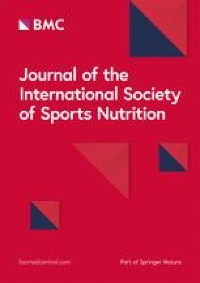For athletes looking to optimize their performance and recovery, protein supplementation is a cornerstone in sports nutrition. With a myriad of options available, choosing the right protein powder can be a daunting task. This article aims to provide a comprehensive overview of various types of protein powders, including their efficacy for dietary supplementation in athletes, based on meta-analyses and scientific studies.
Types of Protein Powders, Ranked by Efficacy
1. Whey Protein Isolate (WPI)
- Efficacy Rating: 9.5/10
- Description: WPI is a highly purified form of whey protein and contains a higher percentage of protein by weight. It is quickly absorbed, making it ideal for post-workout recovery.
- Nutrient Profile: High in protein (90% or more), low in fats and carbohydrates.
- Benefits: Excellent source of all essential amino acids, rich in BCAAs, supports quick muscle recovery.
-
Negatives:
- Potential for acne: May contribute to acne development.
2. Whey Protein Concentrate (WPC)
- Efficacy Rating: 9/10
- Description: WPC contains less protein by weight compared to WPI and includes more fats and carbohydrates. It is still a complete protein source but is absorbed more slowly than WPI.
- Nutrient Profile: Around 70-85% protein, with some fats and carbohydrates.
- Benefits: Complete protein source, rich in BCAAs, supports muscle growth and repair.
-
Negatives:
- Lactose: Like whey, can be problematic for those with lactose intolerance.
- Slower Digestion: Not ideal for immediate post-workout recovery.
3. Casein Protein
- Efficacy Rating: 8/10
- Description: Casein is another milk-derived protein but is absorbed more slowly than whey, providing a steady release of amino acids. It's often consumed before bedtime for sustained protein synthesis.
- Nutrient Profile: Around 80% protein, slower digesting.
- Benefits: Sustained amino acid release, good for overnight recovery.
-
Negatives:
- Lactose: Can be problematic for those with lactose intolerance.
- Slower Digestion: Not ideal for immediate post-workout recovery.
4. Egg White Protein
- Efficacy Rating: 8/10
- Description: Egg white protein is a complete protein source and is low in fat and carbohydrates. It is absorbed at a moderate rate.
- Nutrient Profile: High in protein, virtually no fats or carbohydrates.
- Benefits: Complete protein source, low in calories, good for those who are lactose intolerant.
-
Negatives:
- Allergies: Some people are allergic to egg whites.
- Less Efficient: Not as efficient for muscle protein synthesis compared to whey.
5. Soy Protein
- Efficacy Rating: 7/10
- Description: Soy protein is a plant-based option that is also a complete protein source. However, it is less effective than whey protein in terms of muscle protein synthesis.
- Nutrient Profile: Around 80% protein, low in fats and carbohydrates.
- Benefits: Plant-based, complete protein, good for those who are lactose intolerant.
-
Negatives:
- Allergies: Soy is a common allergen and can cause reactions in some people.
- Phytoestrogens: Contains compounds that mimic the hormone estrogen, which could potentially affect hormone balance.
6. Pea Protein
- Efficacy Rating: 6.5/10
- Description: Pea protein is another plant-based option that is rich in BCAAs but lacks certain essential amino acids. It is a good option for those who are lactose intolerant or vegan.
- Nutrient Profile: Around 75-80% protein, low in fats and carbohydrates.
- Benefits: Plant-based, rich in BCAAs, hypoallergenic.
-
Negatives:
- Incomplete Protein: Lacks certain essential amino acids.
- Taste: Some people find the taste and texture less appealing than other protein types.
7. Hemp Protein
- Efficacy Rating: 6/10
- Description: Hemp protein is another plant-based option that is rich in omega-3 and omega-6 fatty acids but is not a complete protein source.
- Nutrient Profile: Around 50% protein, rich in fatty acids.
- Benefits: Plant-based, rich in omega fatty acids, good for those who are lactose intolerant.
-
Negatives:
- Lower Protein Content: Generally contains less protein per serving compared to whey or casein.
- Cost: Typically more expensive than other protein options.
8. Rice Protein
- Efficacy Rating: 6/10
- Description: Rice protein is hypoallergenic and is often used in blends with other plant-based proteins to improve the amino acid profile.
- Nutrient Profile: Around 70-75% protein, low in fats and carbohydrates.
- Benefits: Plant-based, hypoallergenic, good for those who are lactose intolerant.
-
Negatives:
- Incomplete Protein: Does not contain all essential amino acids.
- Heavy Metals: Some concern about arsenic levels in rice-based products.
9. Collagen Protein
- Efficacy Rating: 5/10
- Description: Derived from animal connective tissues, collagen protein is not a complete protein but is popular for joint and skin health.
- Nutrient Profile: Around 90% protein but not a complete protein source.
- Benefits: Supports joint and skin health.
-
Negatives:
- Not a Complete Protein: Lacks tryptophan, one of the essential amino acids.
- Sourcing: Quality can vary, and some sources may not be sustainable.
Special Considerations for Endurance Athletes
According to a position stand by the International Society of Sports Nutrition, endurance athletes should focus on achieving adequate carbohydrate intake for optimal performance; the addition of protein may help offset muscle damage and promote recovery. It's recommended for endurance athletes to ingest approximately 0.25 g of protein/kg body weight per hour of endurance exercise.
Conclusion
Choosing the right protein powder depends on various factors, including your age, training status, and dietary restrictions. Whey Protein Isolate stands out as the most effective for muscle gain and recovery, followed closely by Whey Protein Concentrate and Casein. Plant-based options like soy and pea protein are also effective but to a lesser extent. Always consult with a healthcare provider or a certified nutritionist before starting any supplementation program.
References
- Morton, R. W., Murphy, K. T., McKellar, S. R., Schoenfeld, B. J., Henselmans, M., Helms, E., ... & Phillips, S. M. (2018). A systematic review, meta-analysis and meta-regression of the effect of protein supplementation on resistance training-induced gains in muscle mass and strength in healthy adults. British Journal of Sports Medicine, 52(6), 376-384.
Would you like to know more about a specific type of protein powder? Feel free to ask!
Note: The efficacy ratings are subjective and based on the available scientific evidence.


